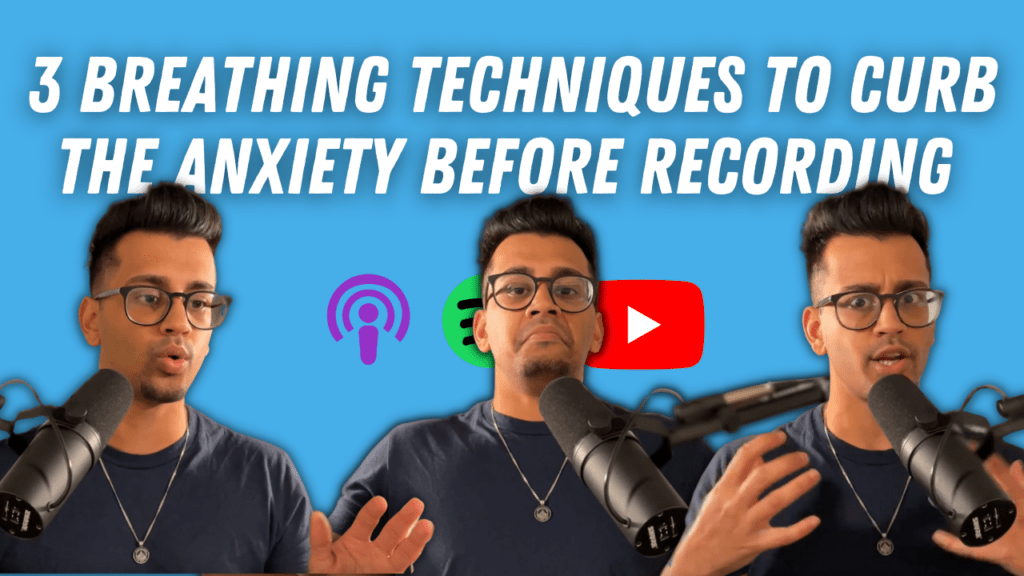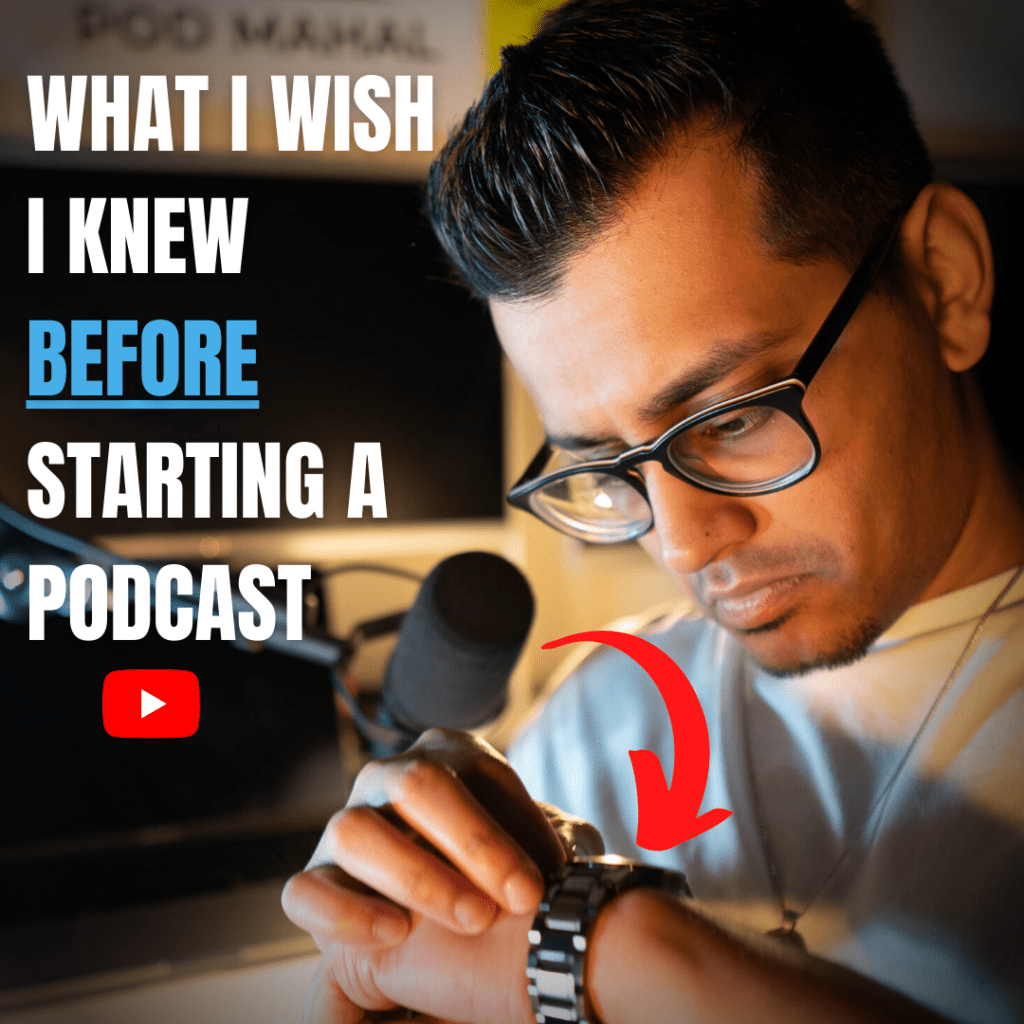- Hardcover Copy: https://geni.us/IkI5g
- Free PDF: https://geni.us/2VRknK
- Eric Jorgenson’s blog (amazing): https://geni.us/c3cPLr
- Naval’s blog: https://geni.us/1BmKiM
Transcript
When I started podcasting in 2016, one of the things that I was constantly on the hunt for was books and media that we’re talking about how to get better at podcasting. And often what I would run into is finding a lot of tech tutorials and tips on growing your show and things that didn’t quite apply to me. At that stage. I still had to figure out how to ask good questions. How do I ask a guest to come on my show? How do I you know, make it worth their time? How do I get more reviews, there were a million questions that I had tactically that I wanted to figure out. But I also want it and appreciated context, I wanted the bigger business connection, the bigger life connection that podcasting would kind of provide the creativity, that it would allow me to also express and there wasn’t really one person that was talking about it from that standpoint or covering all those things, but it is 2022.
And one of the best books on podcasting that I think has ever been written is this one right here. It’s called The Almanac of Naval Ravikant. And it is written by Eric Jorgenson. And if you aren’t familiar with Naval, he’s an angel investor. He’s a philosopher, he’s a business genius. I want to use this as a chance to demonstrate without you even knowing who Naval is what makes this book so valuable? And what lessons come from it. I want to use this specifically for how do you apply this to your own podcast? What are the lessons that you can take away, one of the things that stood out to me immediately was how this book does a great job of actually showing you how to have a successful book a successful podcast, and wealthy healthy life instead of just telling you how to do it or telling you about it.
The reason this lesson is important, not only from a consumption standpoint on why you should maybe read it, but also from a creator standpoint, I found that especially on platforms like Instagram, or social media, if you can do a good job of actually showing what you’re doing if you’re a fitness trainer if you can show yourself working out implementing some of what you’re talking about and allow the audience to experience that change with you. It’s very powerful.
So that was one of the first things that stood out to me. The next thing that’s really huge to note here is that Naval didn’t really write any of this book. And what’s even cooler was that it was derived from all of the podcast material that Navall has ever done. So Eric Jorgensen wrote this book, and it’s a smash hit, Eric then took all of the podcasts, all of the tweets, all of anything that Obama has said and put out there, and then did a lot of condensing and distilling down to some of the best parts. And I have consumed all of this for free online. So all of his podcasts I’ve actually watched on YouTube, which here’s another crazy thing he posts on YouTube, but there’s no video most of the time. It’s just audio and like a clear photo of him an animated one. And it’s kind of like, okay, that’s not what’s ideal for YouTube, right. It’s not the perfect title, perfect thumbnail, or any of those things. But it doesn’t have millions of views. But the people that it does attract, like the fact that I would sit there and watch a YouTube video that doesn’t have any visual but care about only the audio, it filters and distills a very specific type of fan and listener and supporter down. But the cool thing about his podcasts isn’t that they’re hours and hours long.
A lot of them are actually two minutes or three minutes, 10 minutes. And the cool thing about that is that it forces you to treat it like good writing, how do you distill this idea, this piece down to its most distinct parts, and there is no fat in his podcast at all you don’t even hear too much of the interviewer speaking, it’s mostly just him dropping gems after gems after gems after gems. It’s inspiring. Naval really showed that you can use podcasting for a different purpose than just conducting interviews are just doing an hour-long or three-hour-long conversation. Most people fear public speaking, and that live kind of interaction goes live on Instagram or something. And one of the cool things about podcasting is that there’s an element of it, that is live, but then you do get to control everything in the edit.
So the way he edits his podcast is something to know. And model, if you kind of aligned with some of his ideas and his thinking, if you want to preserve your voice across multiple platforms, one of the best ways to do that is podcasting. Because not only do you have the writing part of it, which is kind of tough for a lot of people to do, they hate actually sitting down and writing. So a lot of us can sit there and talk right but then sometimes when there is a camera, it feels a little bit intimidating. So okay, let’s take the camera away. And so the ideas that might flow out of you creatively, are really seeds for a lot of the other content that you might do in your business, whether that’s writing a book or writing several blog posts, it shows you that if the ideas are strong, the cream will kind of rise its way to the top, something they’ve all really done illustrated with this book release was how you can create 10 times the amount of content by sitting there and doing a thoughtful, good job of recording at once.
Because he’s turned it into a best-selling book, there’s this connectivity between all of his content. Here’s another badass thing that I think of all does, he doesn’t pose a regular, the inspiring thing was really, that he used podcasting to create content and build a brand around himself. Something that I find fascinating is the connections to the last I haven’t forgotten about the ball, actually, search for stuff every two weeks and see if there’s something new. And I actually was a fan enough to actually go out and buy a book. So I took action, after all, consuming all the media that he’s created. And that connection is lasting, because of not only the creativity, that he was able to spark for me, but it’s very hard to make somebody buy a book, when it’s like, hey, it’s already online for free. Why would I buy this.
So you really have to be a fan, or you really have to have a connection with the ideas they have to have maybe impacted you in some way to where you would have gone out and actually bought this. But that’s honestly the relationship that we’re after, sometimes as content creators, whether you’re podcasting or YouTubing, or Instagramming. It’s all about finding that relationship with one person. And then hopefully 10 and 100. And whatever number I think it’s worth paying attention to disruptors in a lot of different industries, people who come in and challenge the way things are being done. Podcasting was this guest interview thing for a really long time. And then you had some people who started doing it solo, and they became really good at it, and then became a little bit normal to do more solo podcasts.
A lot of stuff that we covered today isn’t just obvious, you may go through the book and totally missed that. But it’s something that I’m happy that I got to share with you and I left a bunch of good stuff that still is discoverable within this, I really appreciate the way he wrote this book, you don’t have to read it in order, you can flip to any page and you can look, I open to this page. And we got to give me a lever long enough and a place to stand and I will move the earth. What a great, great visual to open this up to and close this video out. He did a great job of actually showing you a physical manifestation of it in the form of books and podcasts and he’s actually living the things that he’s talking about. So if you enjoyed this, check out the links in the description whether you want the book or check out some of the videos I’ve linked up to and I’ll talk to you soon



